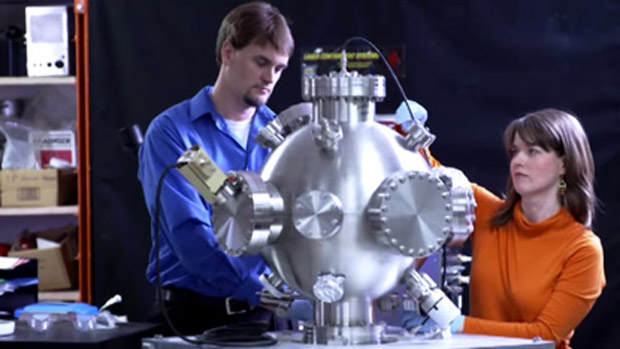Nuclear fusion: has Lockheed Martin solved our energy problems?
Researchers express scepticism over the US defence company's nuclear fusion 'breakthrough'

A free daily email with the biggest news stories of the day – and the best features from TheWeek.com
You are now subscribed
Your newsletter sign-up was successful
Scientists have responded coolly to US aerospace company Lockheed Martin's claim that it has cracked nuclear fusion, thus potentially solving the world's energy crisis.
The company released a short press release and accompanying video on Wednesday claiming that it was "working on a new compact fusion reactor (CFR) that can be developed and deployed in as little as ten years".
Project leader Tom McGuire, whose company is the largest provider of armaments to the US military, said the project could help promote peace and security worldwide.
The Week
Escape your echo chamber. Get the facts behind the news, plus analysis from multiple perspectives.

Sign up for The Week's Free Newsletters
From our morning news briefing to a weekly Good News Newsletter, get the best of The Week delivered directly to your inbox.
From our morning news briefing to a weekly Good News Newsletter, get the best of The Week delivered directly to your inbox.
"The old promise of atoms for peace was a noble one, but ultimately flawed because the technology wasn't right for it," he said. "We can achieve that grand vision and bring clean power to the world. The true atomic age can start."
However, fusion researchers have expressed scepticism over the company's announcement. Professor Steven Cowley, director of the Culham Centre for Fusion Energy in Oxfordshire, told The Guardian he was "nonplussed" at the announcement. "I can't see any results. I mean what have they achieved? It's all promise," said Cowley. "The proof is in the pudding in science. I'm surprised that a company like this would make this kind of announcement without announcing any results."
Ian Hutchinson, a professor of nuclear science and engineering at Massachusetts Institute of Technology agreed with Cowley's assessment: "As far as I can tell, they haven't paid attention to the underlying physics of nuclear fusion," he told the Washington Post.
According to Lockheed, the main innovation of their project is its size; the company claims to have significantly reduced the scale of fusion reactors. If the product works the way Lockheed proposes, it could fit on the back of a truck, and would be about ten times smaller than current reactors. The company also claims to be able to build and test a design in as little as a year, and that it could complete its first operational reactor within ten years. But many researchers said that as yet the claims have little foundation.
A free daily email with the biggest news stories of the day – and the best features from TheWeek.com
Fusion power is "the sun that never rises", the Guardian says, noting that the technology is "perpetually 30 years away".